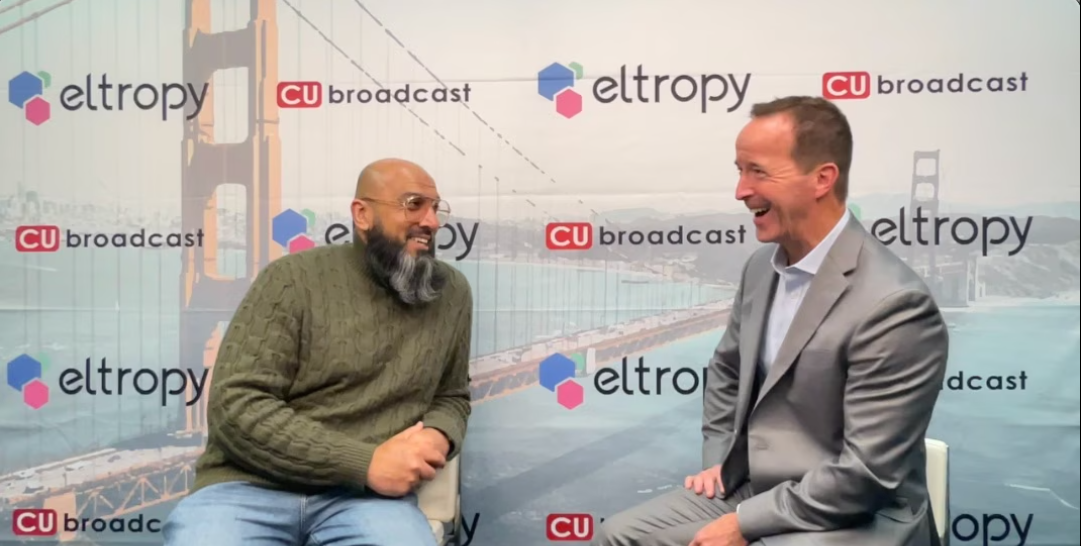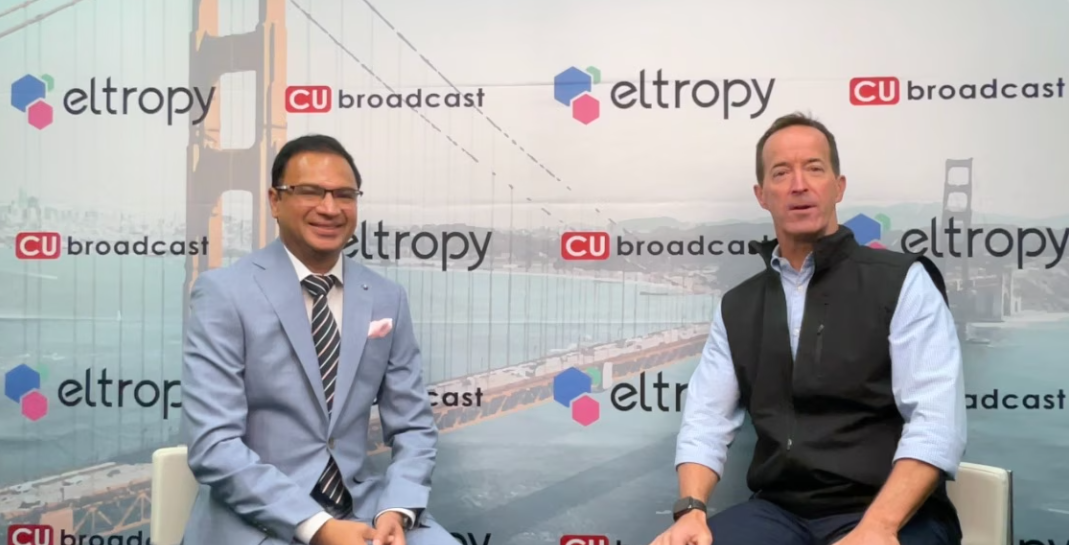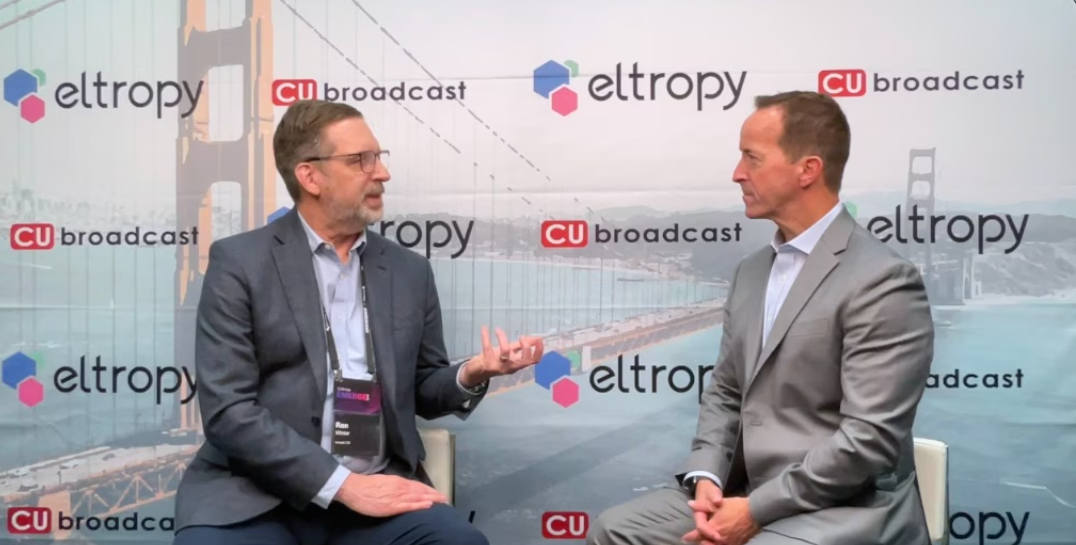Ink on the Interview
Q: How’s the show going? Any highlights to share from Emerge this year?
A: Ashish and his discussion yesterday, as we started off the day, I was floored by some of the stuff Ashish talked about. But as he talked about figuring out how to use technology to bridge empathy. Because I think as collectors, we forget that. We forget the fact that you’re dealing with people, real people, real life, real problems. He started off with a conversation. Create that conversation, and that’s what gets the ball rolling, especially in a collections environment.
Q: Share a little bit about your part in the collections session yesterday, because I thought that was one of the best.
A: It’s funny because I’m part of the Legacy Lexop Group. We talked about this. Lexop used to do a podcast, Collect and Connect. My biggest piece outside of the collection space is that I run a non-profit. We do homeless care, financial literacy, financial wellness, mentorship, and civic awareness. So there’s an altruistic part to this collection’s piece.
And I think part of that is understanding the use of technology to meet members where they are, to communicate with them like they want to be communicated with. I’ve been doing collections since October 20th, 1997. And as a sophomore in college, members don’t want you to talk to them like you talked to them back in ’97.
Q: So what was different in 97 as opposed to 2025?
A: I think the biggest thing is that we’re talking to people on the phone. In 1997, that was your thing. And so I started off in the collection space. I was a collection supervisor. I managed a team of 12 misfits at Wells Fargo Bank.
And then that grew. A couple of years later, I’m 23 years old, I’m managing a group of 46. We’re looking at predictive dialing campaigns, looking at the Saturday newspaper, because we work from 6 a.m. to 3 p.m., to say, okay, well, let’s look at the college football schedule going from East Coast to West Coast. And that’s how we’re going to set up our call campaigns today. This is how it worked. It was, you know, you throw a dart at the wall, you see what sticks. Now it’s not like that.
Now the landscape is communication is through phone, through text, through email. People are rarely talking to you on the phone.
Q: So what was your part yesterday? Do you want to share some great points?
A: Well, so the biggest thing is understanding as my people talked about his 15-year-old nephews. You know, I have a 15-year-old son. And as I was looking, and I talked about this yesterday, as I looked through his cell phone bill, I noticed that for a month, there was not one phone call. This is a great story. And so I asked my wife, I go, hey, did someone steal his phone? Did something happen to his phone? Because there’s no phone calls. And she goes, what are you talking about? The kids don’t talk on the phone.
Well, how the hell did they communicate? She goes, well, they text. And so I went and asked our tellers in the credit union, hey, do you call your boyfriend? No, I don’t call my boyfriend. Do you call your mom and dad? No, I just text.
And so it’s showing me, like, we’re going the way of the dinosaur. If I expect to just pound through phone calls, 100 phone calls a day, 7.25 hours on the phone, I’m going the way of the dinosaur if I continue to communicate with people like I want to communicate with.
Q: So, how has Eltropy helped you at Southland bridge that gap between 1997 and 2025 as far as texting and video and all that type of stuff?
A: So as we propose to go in Q2 as we’re moving the rest of our collection enterprise on the Eltropy platform, it’s helped me talk to people and interact with people that I didn’t interact with previously.
I think the most important part of this, and I think collectors, if you look at the collections of old, is that you focus on the later stage delinquencies instead of early intervention. Early intervention is key because that’s where that relationship is built. If I’m calling you at 30 days or at 45 days and say, hey, you owe me money, your thought process might be, how come you didn’t call me 30 days ago? Exactly. Exactly. And so as we look at
I think Mark talked about this in the first session and, second session yesterday. He talked about the way of Blockbuster. You know, when I look at Blockbuster, during the time that Blockbuster was kind of phasing out, I worked for an FPO, BPO outsource firm where we did stuff at 21st Century Fox Home Entertainment.
But I remember when the movie Avatar came out on Blu-ray. That was like the biggest push. You know, Target, Walmart, all these people are buying millions of copies of this Avatar movie. Only for four months later for it was phased out with Netflix, because you can get it on Netflix for $6.99 a month. So it’s the inability to understand where the landscapes are, where things are moving to, and adjusting your business accordingly. And sometimes, particularly for credit unions, that’s tough to do.
Q: Texting allows you to be more proactive and catch something before a situation gets worse with a member. It allows you to reach out, and get them back on the right track, and play that empathy card, right?
A: But I think, here’s what I picked up. I mean, I think the idea of Conferences like Emerge, and the unique ability of Eltropy to bring people together is to be able to have a think tank into idealship. I mean, I think that was talked about yesterday. If you look at the customer base of Bank of America versus all of credit unions combined, if we shared information, how much better would we do?
I was reading an article in the journal yesterday about the push to tax credit unions. A tax to credit union would increase the federal budget by 2%. It’s a nominal increase. But how would it cripple credit unions in our ability to advocate for our members? The entire industry would be flipped upside down. But if we treat the credit unions like you would treat a FinTech or you would treat a consumer financial firm and not share information, we can’t do that.
And so what I’m seeing now is that it’s the importance of being able to say, hey, I have this idea, and having a qualified source to bounce that idea off of. Yeah. Yeah, like you brought up Mark earlier from Phylene, Mark Meyer from Phylene. He also said, yeah, if we collectively share our data or collectively get together, I mean, we can compete.
Yeah. With the Wells Fargos and the Chase and all that type of stuff. We can compete very effectively. And I’ve heard that story many, many times from people outside the industry looking at the credit union industry.
Q: Where do you see this going in the next five to 10 years?
A: Well, I think the texting is a big piece, but also with the other collections’ avenues that Eltropy offers. So, with the texting, the email, the ability to self-cure, the ability to self-manage. And I think we have to, if you look at the human element of it, delinquency is embarrassing in a lot of instances. It is, yeah. There’s a pride.
Years ago, I ran an organization where we did the foreclosures for Fannie Mae that were Bank of America service loans. I remember the first tranche of accounts, they told me it would be like 10,000 accounts. It was 52,600 foreclosed properties in the Florida area. I remember because it was such a staggering number.
And one thing I remember is I remember making the first phone call, like actually speaking to somebody. And I said, listen, man, we sent you a check for $8,000. Your property is worth $175,000. We need you to deed the property over to us. Why did you call this back? And he said, I was embarrassed. And so I think as we look at that, that early intervention allows us not to be embarrassed.
If I call you early on and you’re like, hey man, look, I got some things going on at work, I may not be able to do this. Hey, I got a text from you, you reached out to me, I’m glad you reached out, I got some stuff going on. Okay, now I can help you. You’re gonna be less embarrassed, because it’s not reactive, I’m reaching out to you proactively. It’s relational.
Q: Anything else to add before I unleash you onto the rest of the show?
A: If you’ve missed an Emerge conference, and if you have not gone to an Emerge conference, next year you should be here. Indeed. Because if this one has been this great and we’re only on day two,


